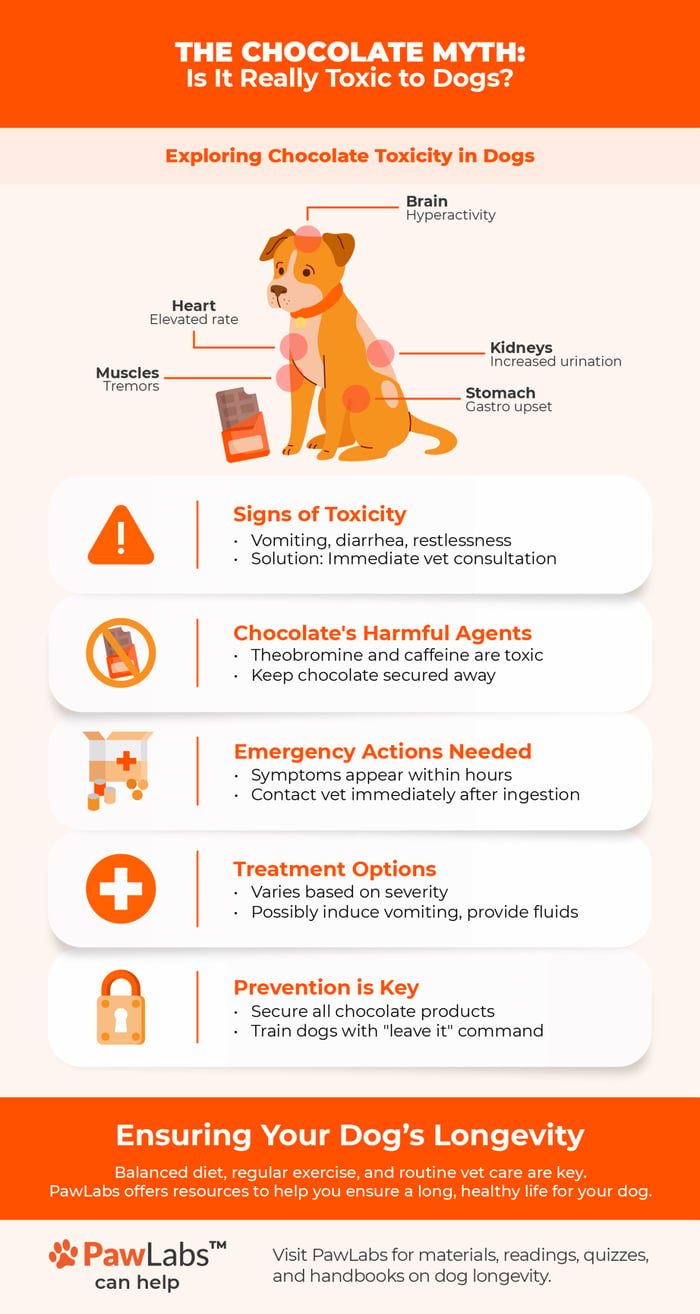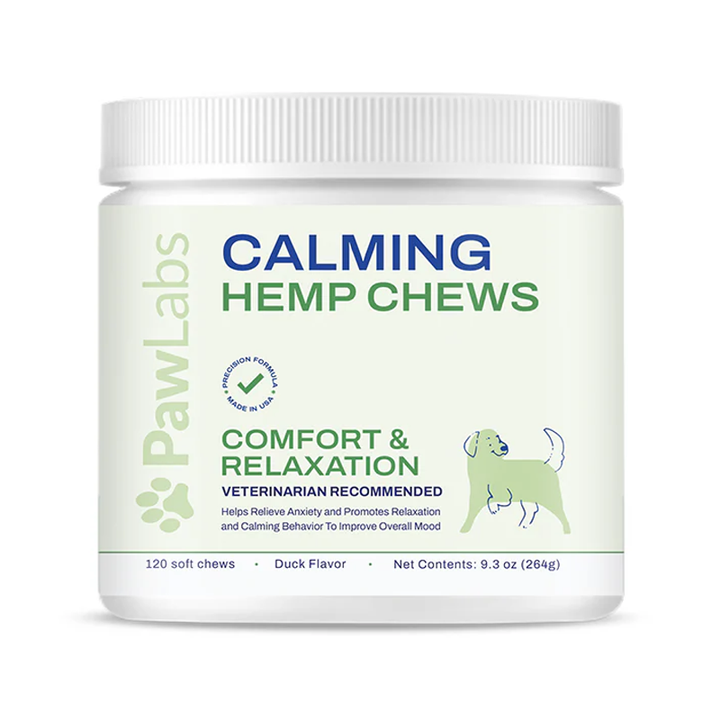Dog Ate Chocolate: A Myth or Is It Really Toxic?
Exploring Chocolate Toxicity in Dogs

Exploring Chocolate Toxicity in Dogs
Chocolate toxicity is a widely discussed topic among dog owners, with numerous myths and facts circulating about the dangers it poses to our furry friends. This blog aims to clear up the confusion, providing reliable information on why chocolate is dangerous for dogs, how it impacts their health, and what steps should be taken if a dog ate chocolate or consumes it. By understanding the science behind chocolate toxicity, you can be better prepared to protect your dog from its harmful effects and ensure their safety and well-being. Join us as we explore this important topic, demystifying the risks and offering guidance for concerned pet owners.

What Exactly Is Chocolate Toxicity In Dogs?
Chocolate toxicity in dogs occurs because they cannot metabolize certain substances in chocolate called methylxanthines (theobromine and caffeine) as humans do. These substances are found in all types of chocolate, with darker chocolates and cocoa powder containing higher levels. The toxicity can cause various adverse effects on a dog's nervous system and heart (Cornell Vet Med) (American Kennel Club).
How Does Chocolate Poison A Dog's System?
Theobromine and caffeine in chocolates competitively inhibit cellular adenosine receptors, leading to increased stimulation of the central nervous system and the heart. This can result in symptoms like increased heart rate, agitation, and hyperactivity. Over time, these substances can lead to severe health issues, including cardiac arrest, especially if large amounts are consumed (Merck Veterinary Manual).
What are the First Signs and Symptoms Of Chocolate Poisoning in Dogs?
Signs of chocolate poisoning in dogs typically appear within 6 to 12 hours of ingestion. Early symptoms include vomiting, diarrhea, excessive thirst, and restlessness. As the toxicity progresses, dogs may experience severe symptoms such as tremors, seizures, and irregular heart rhythms (Cornell Vet Med) (Merck Veterinary Manual).
Is Chocolate Bad for All Dogs, or are Some Breeds More Susceptible?
All dogs are vulnerable to toxicity when a dog ate chocolates, but the risk varies based on the dog’s size, overall health, and the amount and type of product consumed. but the risk varies based on the dog’s size, overall health, and the amount and type of product consumed. Smaller dogs can become ill from smaller amounts of chocolate due to their size, while puppies and older dogs may have a harder time coping with the toxin due to less efficient metabolic systems (Cornell Vet Med) (American Kennel Club).
What Happens Immediately If A Dog Ate chocolate?
A poor diet can lead to lethargy and a lack of appetite. If your dog doesn’t get the right balance of nutrients and your dog ate chocolate, they might feel tired and uninterested in food. This is particularly true if their diet is high in fillers and low in actual nutritional content.
Watch for signs of lethargy such as less playfulness, sleeping more than usual, or a general lack of energy. These can all be indicators that your dog’s diet may need to be adjusted.
How Do I Determine the Severity of Chocolate poisoning?

The severity of chocolate poisoning in dogs depends on the type and amount of chocolate ingested, the size of the dog, and its overall health. Generally, darker chocolates are more dangerous than milk chocolate. Knowing how much chocolate and what type your dog consumed will help your vet determine the risk and appropriate treatment (Cornell Vet Med) (Vca).
What Treatments are Available for Dogs Who've Ingested it?
Treatment depends on how the severity of the toxicity and may include inducing vomiting, administering activated charcoal to prevent further absorption of theobromine, and providing supportive care such as IV fluids and medications to control heart rate and seizures (American Kennel Club)
The toxicity in dogs depends on the severity of the symptoms and when they ate chocolate and it was ingested. Common treatments include inducing vomiting, administering activated charcoal to prevent further absorption, intravenous fluids to aid excretion of the toxins, and medications to control heart rate and seizures (Vca) (Merck Veterinary Manual).
How can Future Incidents of Chocolate Ingestion be prevented?

Preventative measures include keeping all chocolate and chocolate-containing products securely stored away from pets. Teaching commands such as "leave it" can also help prevent dogs from eating harmful substances. Awareness and education about the risks of chocolate are crucial for all pet owners.
Educating all household members, including children, about the dangers of feeding it to dogs is also crucial. Consider using pet-proof containers or storing sweets in high cabinets to reduce the risk of accidental ingestions (Cornell Vet Med) (American Kennel Club).
The Importance of Dog Longevity
Ensuring the longevity of our dogs involves more than just emergency care; it encompasses everyday choices about their diet, exercise, and preventive medicine. Understanding and preventing the risks associated with chocolate and toxic substances is a fundamental part of keeping our dogs healthy and extending their lives.
- Regular Vet Visits: Just like humans, dogs need to see a doctor. Regular check-ups can catch health problems early.
- Balanced Diet: Feeding your dog the right kind of food in the right amount is crucial. This keeps them in good shape and prevents obesity.
- Regular Exercise: Keeping your dog active helps maintain a healthy weight and keeps their heart strong.
- Mental Stimulation: Games, training, and toys keep your dog’s mind sharp and prevent boredom.
Gut-Max Probiotic Chews

Calming Hemp Chews

$59.95
$69.90
7 Key Ingredient Formula: Hemp Seed Oil Hemp Seed Meal Chamomile Valerian Root Passion Flower Ginger Root L-Tryptophan … read more
 SUCCESS!
SUCCESS!





